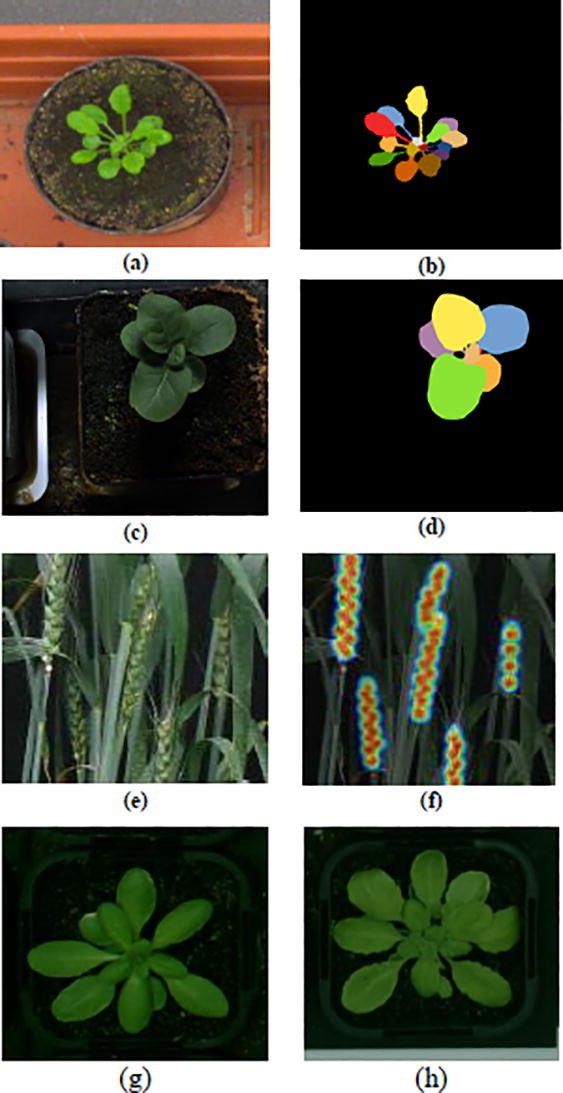Trait identification is the basis for plant resource research, classification, species description, variety identification, and progeny selection. The contents and identification methods vary according to plant species and the purpose of identification. The identification of botanical traits of plants mainly includes morphological features, growth, developmental characteristics, etc. Ecological habits mainly include their growth and development in the environment. Ecological habits mainly include the requirements and adaptability of growth and development to environmental factors, multiple stress resistance, and other traits. The identification means include morphological traits identification, kinship identification, growth and development characteristics identification, variety identification, and stress resistance identification.
 Fig. 1. Sample plant images. (Kolhar et al., 2023)
Fig. 1. Sample plant images. (Kolhar et al., 2023)
With decades of expertise in plant research, Lifeasible is committed to providing comprehensive plant trait identification solutions to customers worldwide. Plant traits are identified by the human senses or with the help of simple measuring tools and advanced laboratory equipment. The material used for identification can be plant populations or plants, or parts of organs, tissues, or even cells. Through a variety of identification methods, we aim to provide a reliable basis for determining the nature of plants, similarities and differences, kinship, genetic response, quality, resistance, etc.
Comparative analysis of the external morphological characteristics of the main organs of plants is a research tool to determine their botanical classification status and affinity. Based on the standards and terminology of botanical morphology, we provide comprehensive morphological characterization services, including bloom density, repetitiveness, flowering period, flower size, color, fragrance, number of stamens and pistils, developmental status, leaf color, leaf size, leaf shape, stem color, stem roughness, fruit size and color, seed color, number of seeds in a single fruit, and seed thousand-grain weight, etc.
In addition to the observation and measurement of morphology, we also provide theoretical methods from botany, horticulture, genetics, cytology and cytogenetics, molecular biology, serology, taxonomy, and statistics to study, analyze, and determine the taxonomic status and kinship of plants.
We test the relationship between the phenological period and growth and development in natural or artificially controlled environments to understand the growth and development pattern, fertility cycle, and specific needs for light, water, and mineral nutrients of plant species. There are two types of identification methods: natural environment identification and artificial environment identification.
We provide sensory, physical, and chemical testing methods to identify the quality of ornamental plants. Identification items mainly include the number of flowers per stalk (such as cut flowers), flower type, flower color, flower size, odor, stalk length, stalk hardness, etc. In addition to ornamental traits, some also need to identify its fast-growing, resistant, medicinal, drinking, and other incidental economic traits. Such as rose varieties also need to identify the flower yield, essential oil content, and chemical composition.
By inducing conditions, we determine the ability of plants to resist adverse environments such as disease and insect resistance, cold resistance, drought resistance, salinity resistance, and resistance to rough management. Identifying resistance to diseases and pests can be done through field identification or indoor identification. Disease resistance identification standards using the prevalence rate, severity, disease index, and other qualitative or quantitative methods of record, pest resistance identification standards for the exclusion of tendency, antibiotic resistance, pest resistance, and other records.
With its expert-driven, technologically advanced services, Lifeasible conducts in-depth analyses of plants from different perspectives and then summarizes and collates the results of each aspect of the appraisal to make a comprehensive evaluation of plant traits. If you are interested in our services, please contact us for more information.
Reference